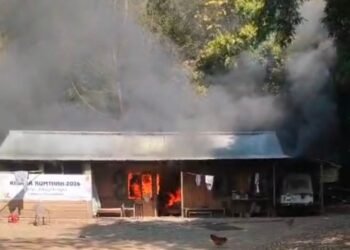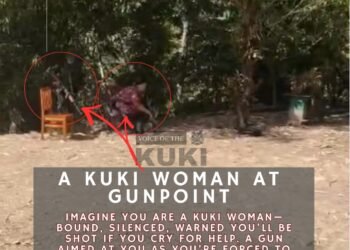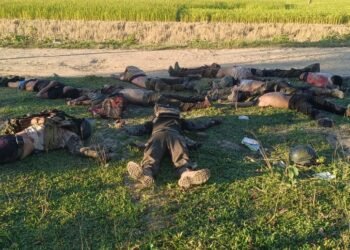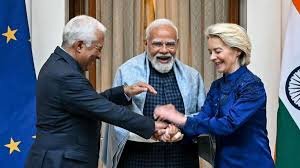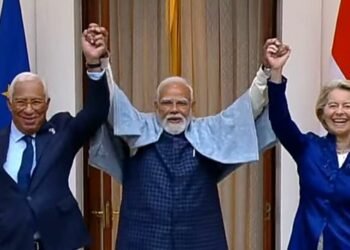As Churachandpur mourned, no MLA visited the bereaved families or issued a statement of condolence. Civil society groups have branded their silence “a betrayal,” accusing them of being “ghosts in their own assembly” under President’s Rule.
BY PC Bureau
November 6, 2025: In the shadow of Manipur’s fractured hills, where the echoes of gunfire still linger over Khanpi village, a deeper silence prevails—one that speaks volumes about the chasm between elected representatives and the communities they serve.
Two days after the Indian Army and Assam Rifles neutralized four cadres of the United Kuki National Army (UKNA) in what officials described as a “successful operation” against insurgents, the Kuki-Zo civil society has erupted in grief and outrage. Shutdowns gripped Churachandpur district, funerals drew tearful processions under black flags, and voices from the Indigenous Tribal Leaders’ Forum (ITLF) and Kuki Inpi Churachandpur thundered demands for an independent probe, accountability, and a political resolution through separate administration.
Yet, from the ten Kuki-Zo Members of the Legislative Assembly (MLAs)—those ostensibly tasked with channeling such anguish into the corridors of power—there has been an utter void. No statements of condolence, no outreach to the bereaved families in Henglep sub-division, no parliamentary queries despite the assembly’s suspension under President’s Rule.
READ: Record Turnout in Bihar: Nearly 65% Votes Cast in Phase 1
This isn’t mere reticence; it’s a pattern of abstention that has left the community reeling, questioning whether their leaders are allies or absentees in the face of state-sanctioned violence. The November 4 encounter, which claimed the lives of four young men aged 17 to 19—described by kin as “our sons, not threats”—has amplified a long-simmering disillusionment.
Official narratives hail the operation as a blow to “terrorists” disrupting peace, with arms recovered and two cadres fleeing the scene. But for Kuki-Zo groups, it’s emblematic of extrajudicial overreach in a conflict-ravaged state, where ethnic fault lines have displaced over 60,000 since May 2023. The Kuki Civil Societies’ joint appeal for mourning and restraint underscores a desperate bid for de-escalation, yet the MLAs’ absence from this chorus feels like a betrayal.
“Our elected voices are the ones who should storm Delhi’s gates,” lamented a Kuki Students’ Organisation spokesperson. “Instead, they hide behind boycotts.”
The silence of the ten Kuki-Zo MLAs extends beyond their refusal to speak on sensitive issues — it reflects a widening disconnect from their own constituents. Community leaders and displaced families complain that their elected representatives remain inaccessible, rarely visiting relief camps or attending local consultations. Phone calls go unanswered, public meetings are avoided, and even community appeals delivered through civil society groups draw no response. For many, this isn’t just political indifference; it’s a form of abandonment — leaders who once sought votes in the hills now appear to have withdrawn behind the walls of power, unreachable and unmoved.
The growing anger is no longer confined to Manipur’s hills. In the national capital, the Kuki Students’ Organisation (KSO), Delhi-NCR recently organized a protest at Jantar Mantar, where its president Paojakhup Guite delivered a blistering address against the MLAs. Guite accused them of “bartering the tribal community’s interest for their own comforts” and warned of serious consequences if they failed to attend the community’s upcoming Consultative Meeting to decide the future course of action. “They enjoy power and perks,” he declared, “but do nothing to serve the cause of the people who voted for them.” The protest drew students, activists, and displaced families, many of whom carried placards reading “Silent MLAs, Suffering Hills.”
The total shutdown called by the Kuki civil societies in Churachandpur district on Wednesday in honour of the four UKNA cadres killed on Tuesday at Khanpi village under Henglep sub-division by security forces evoked mixed responses across the district.https://t.co/8YrtK3RvEO
— Poknapham / The People’s Chronicle (@PoknaphamNews) November 6, 2025
This silence is no anomaly. The ten MLAs—seven from the BJP, two from the Kuki People’s Alliance (KPA), and one Independent—have all stood with the tribal community’s demand for a Union Territory. But on the ground, their interventions are spectral. The Kangpokpi–Churachandpur “German Rifles” road project, vital for hill connectivity yet mired in Meitei objections and state neglect, saw no MLA-led advocacy amid 2024 blockades.
Frequent verbal attacks by Meitei civil society groups and former Chief Minister N. Biren Singh’s administration—accused of fueling “narcoterrorist” rhetoric—have drawn no collective resolutions, no solidarity marches. Among this octet of reticence, only Paolienlal Haokip, the BJP MLA from Saitu in Churachandpur district, has occasionally pierced the quiet through social media. A vocal critic of Biren Singh, Haokip has used X (formerly Twitter) to decry “state complicity” in ethnic violence.
In February, he slammed doctored videos maligning him as reflective of valley radicalization; in July 2023, he lambasted Prime Minister Narendra Modi’s framing of tribal atrocities as mere “law and order” issues. His posts, fiery and forensic, have drawn ire from Meitei groups, including calls for his disqualification over perceived justifications of militant actions. But even Haokip’s digital dissent remains sporadic—it is, in essence, all there is: a flicker in the dark, not the blaze the community craves.
| MLA Name | Party | Constituency | Notable Activity (If Any) |
| Letpao Haokip | BJP | Tengnoupal | Silent boycott; no public statements on recent incidents |
| Nemcha Kipgen | BJP | Kangpokpi | Silent boycott; focused on Delhi sit-ins |
| L.M. Khaute | BJP | Saikot | Occasional tributes to “martyrs” in past encounters (e.g., Nov 2024 Jiribam); otherwise muted |
| Ngursanglunga Zoneng | BJP | Tipaimukh | No recorded interventions on community crises |
| Paolienlal Haokip | BJP | Saitu | Social media critiques of govt (e.g., Biren tapes, ethnic framing); sole occasional voice |
| Letzamang Haokip | BJP | Churachandpur | Silent on November 4; past support for separate administration demand |
| Vungzagin Valte | BJP | West Tuipang | No public engagement amid ongoing violence |
| Kimneo Haokip Hangshing | KPA | Saikul | Collective boycott; no individual statements |
| Janghemlung Panmei | KPA | Henglep | Silent; community-wide abstention |
| Haokholet Kipgen | Independent | Sadar Hills East | No interventions; aligned with UT demand |
This table underscores the uniformity of inaction, with Haokip’s outlier status a poignant exception. Analysts point to a toxic brew: BJP loyalty binding seven MLAs, fears of reprisal under President’s Rule (extended to February 2026), and the existential bind of representing a community demanding autonomy while tethered to Imphal’s politics.
“They’re ghosts in their own assembly,” quips a Delhi-based tribal rights observer. “Elected on hill promises, but paralyzed by valley shadows.”
As buffer zones scar the landscape and IDP camps swell toward a December resettlement deadline, the MLAs’ hush risks eroding the very mandate that placed them in power. CSOs, ever the vanguard, fill the breach with shutdowns and probes, but their pleas for political dialogue—framed as the “only viable peace”—go unheeded by those who could amplify them.
In Khanpi’s mourning fog, the real encounter may be with this internal void. Until these ten shatter it, the hills’ cries will echo unanswered—a dirge for democracy deferred.




